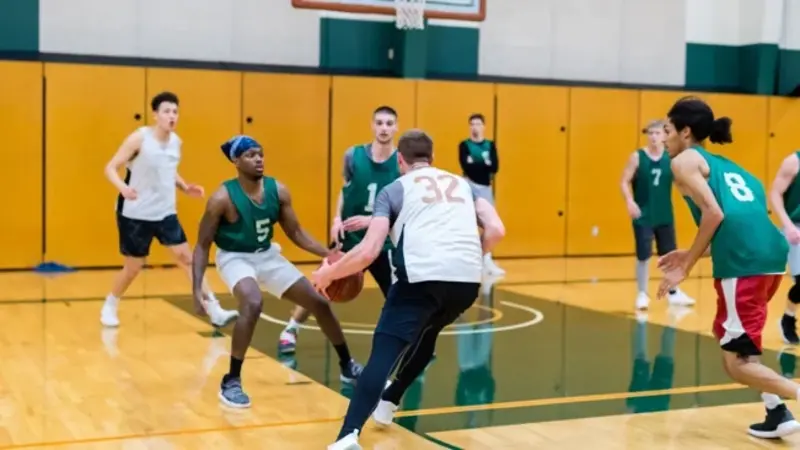Confidence is one of the most crucial elements for young basketball players looking to succeed both on and off the court. When players feel self-assured, they are far more likely to take initiative, recover quickly from setbacks, and develop into resilient team members. Whether you’re a coach looking to nurture your team or a parent hoping to encourage your child’s growth, understanding effective methods for bolstering confidence is essential. For families seeking additional support, enrolling students in programs like youth basketball camps in Virginia provides not only quality coaching but also opportunities for positive growth experiences in a team-oriented setting.
Confidence-building doesn’t happen by chance. Both coaches and parents need intentional strategies rooted in support, encouragement, and structured feedback. Here’s how to help young athletes unlock their full potential.
Key Takeaways
- Positive reinforcement and constructive feedback empower players and build lasting self-esteem.
- Setting clear, achievable goals guides player development and fosters motivation.
- Visualization and mental preparation give young athletes tools to manage pressure and elevate performance.
- A supportive atmosphere encourages taking healthy risks and builds resilience.
- Teaching players to view mistakes as learning experiences creates a foundation for long-term improvement.
- Promoting a growth mindset, open communication, and positive role modeling are key influences on confidence and attitude.
Positive Reinforcement and Constructive Feedback
Consistent, specific praise builds a foundation of self-belief in young athletes. Instead of offering generic compliments, recognize individual efforts such as a smart pass, hustle on defense, or a supportive attitude toward teammates. Highlighting what a player did well provides concrete examples they can repeat. Constructive feedback should focus on areas for growth while remaining supportive—framing suggestions as opportunities rather than criticisms. This approach nurtures a player’s enthusiasm and helps them feel valued within the team structure.
Setting Achievable Goals
Goal setting delivers both motivation and clarity. Young players should work with their coach or parent to set goals that are realistic and measurable. These might range from improving dribbling skills to increasing free-throw percentages by a small increment over the season. Breaking large ambitions into smaller milestones makes progress more tangible and creates steady opportunities for celebration. Regular check-ins about these goals can refocus energy and reignite drive throughout the season.
Visualization Techniques
Mental rehearsal is a powerful tool for young athletes. Encourage players to spend a few minutes before a game picturing themselves succeeding—sinking a basket in a tight moment, making a key steal, or maintaining focus during a challenging play. This type of visualization not only builds confidence but also cultivates familiarity with high-pressure scenarios, making them easier to navigate when they happen in real life. Guidance and affirmations during these exercises can help players maximize the benefits.
Creating a Supportive Environment
The culture of a team has a tremendous effect on an athlete’s confidence. Coaches who cultivate respect, camaraderie, and inclusion empower players to take risks and express themselves. Celebrating collective and individual achievements, emphasizing teamwork, and addressing bullying or negativity promptly ensures that young athletes view basketball as a safe outlet for growth. Parents can reinforce this supportive culture by engaging positively on the sidelines and emphasizing effort over outcomes.
Embracing Mistakes as Learning Opportunities

No player is immune to making mistakes, but the response to those moments makes all the difference. Coaches and parents should normalize errors as integral to improvement—an essential step in every athlete’s journey. Instead of focusing on what was done wrong, help young players analyze mistakes in a supportive way: What was learned? What might they try differently next time? This perspective reduces fear of failure and encourages resilience, key components of growing confidence in basketball and beyond.
Fostering a Growth Mindset
A growth mindset is about believing in the power of practice and effort. Coaches can nurture this outlook by praising persistence, adaptability, and continuing improvement rather than achievement or innate ability. Parents can add to this foundation by modeling perseverance in their own lives and discussing challenges as opportunities. Resources such as Dr. Carol Dweck’s work on growth mindset provide evidence-based approaches to encouraging this valuable way of thinking, which pays dividends in all areas of a young person’s life.
Encouraging Open Communication
Open dialogue between coaches, parents, and players establishes trust and ensures every athlete feels heard. Regular conversations about goals, challenges, and well-being allow adults to identify and address confidence issues early. Active listening and validating a player’s feelings can ease anxieties, while collaborative problem-solving helps players develop independence and accountability. Communication should always emphasize that it’s normal to feel nervous, make mistakes, and work through setbacks as a team.
Role Modeling Confidence
Young athletes are profoundly influenced by the adults around them. Coaches who handle adversity with grace and parents who encourage positive risk-taking model the very confidence they hope to nurture. Demonstrating composure under pressure, celebrating others’ successes, and approaching challenges constructively all serve as powerful lessons. When young players see courage and optimism modeled by those they respect, they’re more likely to embody those qualities themselves.
Building up the confidence of young basketball players takes time, patience, and deliberate effort. By combining targeted feedback, achievable goals, visualization, support, and a focus on resilience, coaches and parents lay a strong foundation for both athletic achievement and personal growth. The rewards—a player who believes in themselves and isn’t afraid to push their limits—extend far beyond the basketball court. Visit my website.
